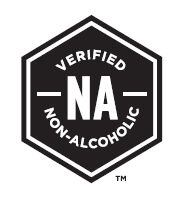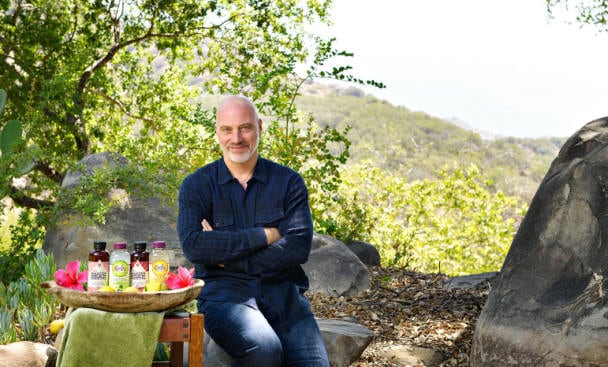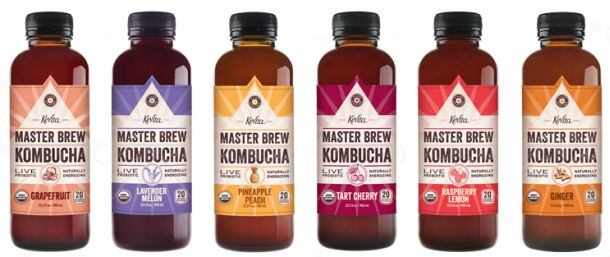One of the fastest-growing segments in the functional beverages category with North American retail sales set to hit $500m this year, kombucha is tea fermented with live bacteria and yeast that creates carbon dioxide, alcohol and acetic acid and has a fizzy, slightly vinegary taste.
While many companies routinely test their kombucha to ensure it contains less than 0.5% abv (to be classified as a non-alcoholic beverage), others “don’t know, or don’t want to know” if they are over the limit, claimed KeVita CEO Bill Moses, who told FoodNavigator-USA earlier this year that some players were “thumbing their nose at the regulators” and that this was an “open secret” in the trade.
Speaking to us Thursday, he said a voluntary 'Truth in Labeling' initiative – whereby companies that have had off-the-shelf samples independently tested could use a ‘Verified non-alcoholic’ logo – was a positive way to tackle the problem.
He added: “We’ve talked to several manufacturers and a lot are interested in collaborating. We’ve also spoken to leading retailers and they are supportive as the TTB (The Alcohol and Tobacco Tax and Trade Bureau) said in March that ‘many’ products it had tested contained at least 0.5% abv.”
KeVita is willing to subsidize initial cost of testing for small producers
Kombucha products that contain more than 0.5% abv are legal, but must be clearly labeled as such (and classified as alcoholic beverages, which are regulated by the TTB).
For example, GT’s Classic kombucha clearly states that it may contain more than 0.5% abv, whereas its Enlightened range is non-alcoholic.
“I think there is a huge opportunity for kombucha in craft brewing," said Moses. "So if that’s the area of the market you are in, why not make this clear on your labels, and try to win in that category?”

To get the ball rolling, KeVita plans to start using a new ‘Verified non-alcoholic’ logo on its Master Brew Kombucha and is encouraging other kombucha companies that have also had their products independently tested to use it as well.
Ultimately, however, KeVita wants to partner with an independent third party that can manage the verification process on an ongoing basis, said Moses, who said KeVita was prepared to contribute up to $100,000 to get a initiative off the ground.
“We’re committed to lead funding for the design and initial implementation of the certification process covering areas such as the design of third party product testing protocols… We are also willing to subsidize the initial cost of testing for small producers. If they don’t pass the lab tests, the results would remain confidential, but if they do, they can use the logo.”

TTB: Use a manufacturing process that will ensure your product remains compliant after it leaves your plant
But why are products over the limit in the first place?
Many reasons, said Moses, who said strict controls over manufacturing processes were needed to ensure kombucha did not carry on fermenting (and creating more alcohol) after it was bottled, another reason why firms needed to test products off the shelf, not just at their manufacturing plants.
The TTB for example, notes on its website that refrigeration is “not an adequate method" of ensuring that the alcohol content will not increase after it leaves your plant “because you cannot control whether the product will be refrigerated after removal”.
Therefore, it says, “You must use a method of manufacture (such as pasteurization) that will ensure that the alcohol content of the beverage will not increase while in the original container after removal.”
KeVita, for example, has perfected a filtration process to get all the yeast out of its Master Brew Kombucha range prior to bottling, and says ultimately, the buck stops with the manufacturer.
“Some of my fellow manufacturers are quick to say this is a supply chain issue,” said Moses. “But it’s the manufacturer’s responsibility to ensure that the product that is sold to the consumer is compliant with the law.”

US retail sales of Kombucha expected to be approximately $500m in 2015
But why not leave this to the TTB, which says that it is working with producers “so that they may come into compliance” and that if tests show products are over the limit, it “may seek corrective action”?
Because the industry should be on the front foot on the issue, said Moses: “We feel that self-regulation would really help those that are compliant be protected. In 2010, they just pulled everyone off the shelf indiscriminately... The need has become clear for an industry-led, standardized testing and alcohol level compliance protocol that can be trusted by consumers, producers and retailers.”
Master Brew Kombucha, which KeVita launched in November 2014, has a strong presence in the natural channel and rapidly growing distribution in the conventional channel, where it has already reached the #2 spot in the category, claimed Moses.
